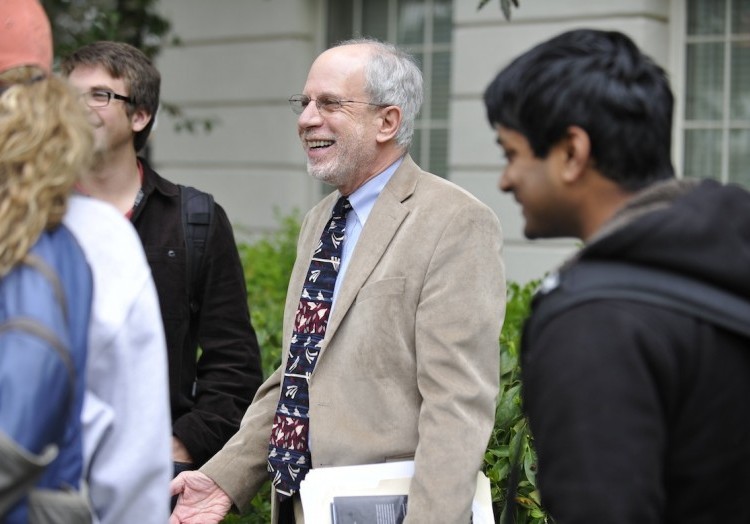Some of the deepest questions in a democracy stem from how citizens think about voting and why they vote. Dr. Robert Grafstein grapples with these questions through the lens of a philosophical thought experiment called “Newcomb’s Problem,” in his new article “Newcomb’s Problem is Everyone’s Problem: Making Political and Economic Decisions When Behavior is Interdependent.”
As Grafstein explains, Newcomb’s Problem, also known as Newcomb’s Paradox, can help us understand why people choose to vote by helping us to view the decision not to vote as a rational choice. He mentions that this is only one of many social scientific applications of the thought experiment, “Newcomb’s Problem isn’t an esoteric issue… It actually relates to a lot of decisions that we make, including in politics and society, the most notable one being voting but there are lots of other ones as well.”
Grafstein’s article will be a chapter in a Cambridge University Press book about Newcomb’s Problem coming out in October.
Another topic Grafstein has been researching gets to the core of recent voting issues in another way. “The Problem with Polarization,” recently published in Public Choice, goes deeper into the issue of polarization and extremism in politics. Keith T. Poole and Howard Rosenthal identified this problem in the 1980s, but Grafstein’s paper attempts to explain exactly why polarization is an issue today.
“Polarization itself is not a problem as long as people can put aside their beliefs and shake hands at some point. But we’re seeing polarization that leads to extremism and dysfunctional politics, which is why it has become a problem,” Grafstein explains.
What Grafstein has found is that income is an important source of the polarization that leads to extremist beliefs. This is rather groundbreaking considering extremist beliefs are often referred to by the media as the result of psychological or genetic issues. But as Grafstein explains, “20 percent of Trump voters voted for Obama, so it’s highly unlikely that those people just ‘snapped’ between elections. Rather, they’re making a tradeoff. People do not become polarized as a result of some psychological or genetic issue, they become polarized based on their reaction to risk related to their income.”
So according to Grafstein, politics is a risky endeavor, but it’s more risky for people at the economic poles which is what leads to political polarization. People on the low end of the economic spectrum have a lot to gain compared to the risk of having their income drastically reduced. People on the high end of the economic spectrum risk losing their fortunes. This risk pushes people at the economic poles toward the political poles.






